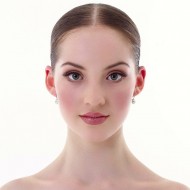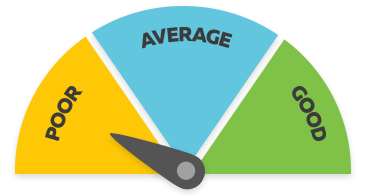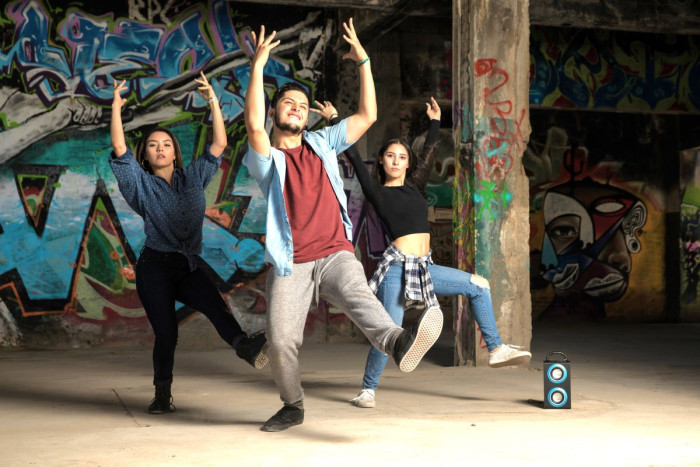Dancer
Kaikanikani
Alternative titles for this job
Dancers entertain people by expressing ideas and emotions, usually to music, using body movements.
Pay
Pay rates for dancers vary depending on ability, how often they work and what type of work they do.
Source: The Big Idea, 2023
Job opportunities
Pay
Pay rates for dancers vary depending on ability, experience, how often they work and what type of work they do. Work may be irregular, and many dancers rely on second jobs to make a living.
- Performing artists - including dancers – usually earn the minimum wage when working in their field.
- Full-time classical dancers can earn between minimum wage and $75,000 a year.
Contemporary dancers are usually paid per project or performance. Some dance companies employ contemporary dancers full-time.
Sources:careeers.govt.nz research, The Big Idea, 'Lowdown - Creatives income research paints grim picture', 2023.
(This information is a guide only. Find out more about the sources of our pay information)
What you will do
Dancers may do some or all of the following:
- attend dance classes to rehearse movements and learn techniques
- exercise daily
- research and identify what areas of their body are prone to injury, and work to prevent this
- combine movement with musical accompaniment
- audition for dance companies and dance roles
- study and practise roles
- complete tasks set by choreographers
- perform in front of an audience or camera.
Skills and knowledge
Dancers need to have:
- an understanding of different dance and drama techniques, and the ability to use them in performance
- an understanding of music and rhythm
- skill in interpreting ideas into dance
- performance skills
- the ability to memorise dance sequences
- knowledge of anatomy and how the body works.
Working conditions
Dancers:
- usually work irregular hours and mostly work part time. If they are full time, dancers generally rehearse from 9am to 5pm, although when they are touring and performing they may work longer hours
- work in rehearsal rooms, studios and theatres, and may also perform outside
- may travel around the country to perform and may tour internationally.
What's the job really like?

Olivia Moore
Dancer
Dancing since childhood
"I started dancing in Dunedin when I was three years old, then moved to Tauranga when I was seven, where I trained at the Dance Education Centre.
"When I was 15, I was accepted into the New Zealand School of Dance where I trained for one year. I then joined the Royal New Zealand Ballet after artistic director Patricia Barker invited me to, having watched me perform at the New Zealand School of Dance fiftieth anniversary graduation season."
Challenging but worth it
"The hardest thing about being a dancer is the hard work and discipline. You have to keep working hard no matter how tired you get.
"Missing out on school and the social side of things was a challenge at first, but now that I’m doing it as a job I love it.
"I’m also currently studying NCEA Level 2 via correspondence with Te Kura, so at times it can be a challenge to balance both work and study, but I think it’s good to keep going."
Amazing achievements
"My proudest moments include being chosen to perform at the New Zealand School of Dance fiftieth anniversary graduation season, being accepted into the New Zealand School of Dance at the age of 15, and being offered a contract with the Royal New Zealand Ballet, which has always been a dream of mine."
Dancer video
Kura Te Ua talks about her work as a haka theatre director, choreographer and tutor – 2.32 mins.
Johnson: It’s the first time that I’ve heard of this term "haka theatre". Where did it come from? Did you make it up yourself? Can you tell us a little bit more about it?
Kura: So haka theatre was first I guess you could say born – the term – with a production called Arohanui in 2011, combining elements of kapa haka, Māori dance and theatre. And so it was born by a few people – I was just the one that picked it up and ran with it.
Johnson: Just going back to you growing up, were you always this energetic, quite fiery character in terms of dance? Were you always quite a performer?
Kura: I was very, very, very, very, stupidly shy, yeah. It was like a taniwha that sat on my shoulder a lot of the time, I was very shy. To this day I think haka or kapa haka brought that out of me, totally whipped it out.
We were brought up in a Black Power village in Ōtāhuhu. So you know, you can imagine what kind of a life that was. But what it did teach me was that I could either go one way or the other. I could go one extreme down the same way that I had seen or the experiences that I bore witness to, or I could go the opposite way. And myself and my bro, we chose to go the opposite way. Through kapa haka we were able to do that, though.
Johnson: For our young people out there who may not fit into a particular box but are creative like you, what are some tips you can give them to maybe even pursue a dance career?
Kura: Sometimes our rangatahi don’t actually know that that’s what they’re good at until someone comes and pulls it out of them. If they know that they like to dance, then attach themselves to programmes like the Certificate in Performing Arts, attach themselves to crews or companies that exist where they can surround themselves and feed the fire.
Johnson: Put it there man, we’re going to smash it.
Kura: Yeeah!
Entry requirements
There are no specific requirements to become a dancer. However, a relevant tertiary qualification, such as a New Zealand Diploma in Dance, is usually required.
Secondary education
There are no specific secondary education requirements to become a dancer. However, music, dance and drama are useful.
Personal requirements
Dancers need to be:
- creative
- motivated and disciplined
- able to pay attention to detail
- punctual and reliable
- adaptable
- good communicators.
You're always working with other people because that's what dance is all about, so communication skills and being able to get along with others is really important.

Lauren de Boeck
Dancer
Useful experience
Useful experience for dancers includes:
- physical activities such as athletics
- dance
- ability to play a musical instrument
- acting or any other kind of public performance.
Physical requirements
Dancers need to have:
- excellent fitness and health
- strong feet, ankles, legs and back
- good co-ordination
- a flexible body.
Find out more about training
- New Zealand School of Dance
- (04) 381 9252 - dance@nzschoolofdance.ac.nz - www.nzschoolofdance.ac.nz
- Unitec Institute of Technology
- 0800 10 95 10 - study@unitec.ac.nz - www.unitec.ac.nz
- University of Auckland
- 0800 61 62 63 - studentinfo@auckland.ac.nz - www.auckland.ac.nz
What are the chances of getting a job?
Few opportunities for dancers
It is difficult to find full-time work as a dancer in New Zealand, so dancers often have other jobs as their main source of income.
According to the Census, 150 dancers worked in New Zealand in 2018.
Dancers typically have short careers
A dancer's career can be quite short due to the physically demanding nature of the role, and the risk of long-term injury. As a result, many dancers go on to work as dance teachers or administrators in the arts industry.
Dancers may also retrain in another area of work when they finish their dancing career.
Few employers of full-time dancers
The Royal New Zealand Ballet, which consists of 16 male and 16 female ballet dancers, is one of the few employers of full-time dancers in New Zealand. Other employers of dancers in New Zealand include:
- New Zealand Dance Company
- Kahurangi Māori Dance Company
- Black Grace
- Footnote New Zealand Dance.
Dancers may work on contract for corporate events, musical productions or contemporary dance companies.
Sources
- Aindow, R, general manager, Footnote New Zealand Dance, careers.govt.nz interview, May 2018.
- Bindon, C, artistic executive, New Zealand Dance Company, careers.govt.nz interview, March 2018.
- Brick, J, media and communications manager, Royal New Zealand Ballet, careers.govt.nz interview, April 2018.
- Stats NZ, '2018 Census Data', 2019.
(This information is a guide only. Find out more about the sources of our job opportunities information)
Progression and specialisations
Dancers can move into:
- dance production
- choreography
- teaching dance
- arts administration.
They may also progress to become artistic directors or set up their own dance studio.
Dancers may specialise in a particular style of dance such as:
- ballet
- contemporary
- Latin
- ballroom
- jazz
- tap
- burlesque
- kapa haka (Māori cultural dance).
Last updated 27 November 2023

